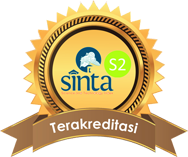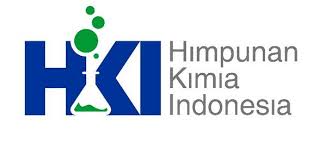The Application of Inquiry-based Worksheets on Secondary Metabolite Analysis of Indonesian Medicinal Plants
DOI:
https://doi.org/10.15575/jtk.v6i2.12068Keywords:
inquiry-based worksheet, phytochemical screening, secondary metaboliteAbstract
References
Ango, M. I. (2002). Mastery of Science Process Skill and Their Effective Use in the Teaching of Science: An Educology of Science Education in the Nigerian Context. International Journal of Educology, 16(1), 11-30. Retrieved from http://www.era-usa.net/images/011-IJE_2002_V16_N1_Ango,_Mary,_Mastery_of_Science.pdf.
Ariesta, R., & Supartono. (2001). Pengembangan perangkat perkuliahan kegiatan Laboratorium Fisika Dasar II berbasis inkuiri terbimbing untuk meningkatkan kerja ilmiah mahasiswa. Jurnal Pendidikan Fisika Indonesia, 7, 62-68. https://doi.org/10.15294/jpfi.v7i1.1072
Astuti, Y., & Setiawan, B. (2013). Pengembangan lembar kerja siswa (LKS) berbasis pendekatan inkuiri terbimbing dalam pembelajaran kooperatif pada materi kalor. Jurnal Universitas Negeri Semarang, 2(1), 88-91. https://doi.org/10.15294/jpii.v2i1.2515
Budiman, M. S. (2011). Pembelajaran praktikum berbasis inkuiri terbimbing untuk meningkatkan keterampilan proses sains siswa pada materi laju reaksi [Unpublished thesis]. Universitas Pendidikan Indonesia.
Depdiknas. (2007). Materi sosialisasi dan pelatihan Kurikulum Tingkat Satuan Pendidikan (KTSP) SMP: pengembangan bahan ajar. Jakarta: Depdiknas.
Fajriani, S. (2010). Pembelajaran materi hidrolisis garam melalui praktikum berbasis inkuiri terbimbing untuk meningkatkan keterampilan proses sains siswa [Unpublished thesis]. Universitas Pendidikan Indonesia.
Johnstone, A. H., & Shuaili, A. (2001). Learning in laboratory; some thoughts from the literature. The Royal Society of Chemistry, 5(2), 42-50. Retrieved from https://www.rsc.org/images/Vol_5_No2_tcm18-7041.pdf
Kurniasih, I., & Berlin, S. (2016). Ragam pengembangan model pembelajaran untuk peningkatan profesional guru. Jogjakarta: Kata Pena.
Kurnianto, P., Dwijananti, P., & Khumaedi, (2010). Pengembangan kemampuan menyimpulkan dan mengkomunikasikan konsep fisika melalui kegiatan praktikum fisika sederhana. Jurnal Pendidikan Fisika Indonesia, 6(1), 6-9. https://doi.org/10.15294/jpfi.v6i1.1094
Maija, A., & Bostrom, M. (2012). Supporting students interest through inquiry-based learning in the context of fuel cells. Mevlana International Journal of Education, 2(3), 53 – 61. Retrieved from https://researchportal.helsinki.fi/en/publications/supporting-students-interest-through-inquiry-based-learning-in-th
Ramdani. (2016). Pengembangan lembar kerja berbasis inkuiri pada analisis metabolit sekunder beberapa tumbuhan obat indonesia. [Unpublished thesis]. Universitas Islam Negeri Sunan Gunung Djati Bandung.
Rokhmah, A., & Madlazim. (2015). Pengembangan lembar kerja (LKS) berbasis inkuiri terbimbing untuk melatihkan keterampilan siswa dalam melakukan eksperimen pada materi ajar sumber energi terbarukan. Jurnal Inovasi Pendidikan Fisika (JIPF), 4(2), 88-91. Retrieved from https://ejournal.unesa.ac.id/index.php/inovasi-pendidikan-fisika/article/view/12305/11370
Sugiyono. (2014). Motede penelitian pendidikan pendekatan, kuantitatif, kualitatif dan R&D. Bandung: Alfabeta.
Supasorn, S., & Waengchin, S. (2014). Development of grade 8 students learning achievement on chemical reaction by using scientific investigation learning activities. Procesia-Socialand Behavioral Science, 116, 744-749. Retrieved from http://www.academia.edu/8845838/Saksri_Supasorn_and_Saranya_Waengchin._2014_._Development_of_Grade_8_Students_Learning_Achievement_on_Chemical_Reaction_by_Using_Scientific_Investigation_Learning._Procedia_-_Social_and_Behavioral_Sciences A116, 744-749
Wartono. (2003). Strategi belajar mengajar fisika. Malang: JICA.
Wulandari, A. D. (2011). Pembelajaran praktikum berbasis inkuiri terbimbing untuk meningkatkan keterampilan berpikir kritis siswa SMA pada materi laju reaksi [Unpublished thesis]. Universitas Pendidikan Indonesia.
Downloads
Published
How to Cite
Issue
Section
Citation Check
License
Authors who publish with this journal agree to the following terms:
- Authors retain copyright and grant the journal right of first publication with the work simultaneously licensed under a Creative Commons Attribution-ShareAlike that allows others to share the work with an acknowledgement of the work's authorship and initial publication in this journal.
- Authors are able to enter into separate, additional contractual arrangements for the non-exclusive distribution of the journal's published version of the work (e.g., post it to an institutional repository or publish it in a book), with an acknowledgement of its initial publication in this journal.
- Authors are permitted and encouraged to post their work online (e.g., in institutional repositories or on their website) prior to and during the submission process, as it can lead to productive exchanges, as well as earlier and greater citation of published work (See The Effect of Open Access).









